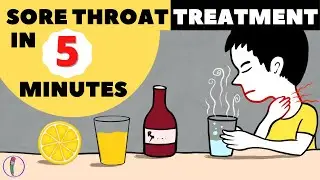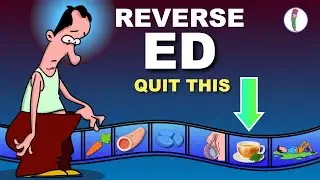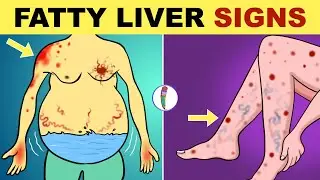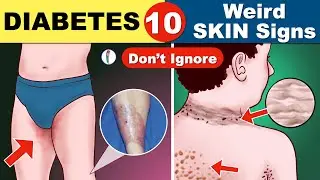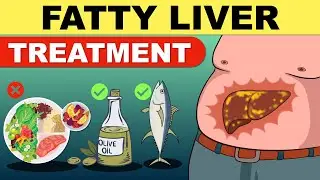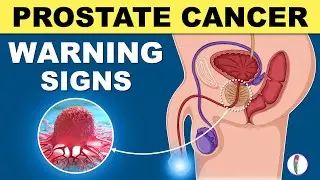10 Early Signs of Colon Cancer That Could Save Your Life
10 Warning Signs of Colon Cancer You Should Never Ignore
Colon cancer, also called colorectal cancer, is one of the most common cancers worldwide. Early detection can save lives, but symptoms are often overlooked. Here’s a quick guide to help you recognize the warning signs and take timely action.
✔️ 1. Changes in Bowel Habits
→ Persistent diarrhea, constipation, or altered stool consistency.
→ Why: Tumors can obstruct or irritate the colon.
→ When to act: If symptoms last over two weeks, consult a doctor.
✔️ 2. Blood in Stool (Rectal Bleeding)
→ Blood in stool (bright red or dark) is a serious red flag.
→ Why: Tumors can cause internal bleeding.
→ Tip: Keep track of bleeding frequency and amount.
✔️ 3. Unexplained Weight Loss
→ Sudden weight loss without changes in diet or activity.
→ Why: Cancer alters metabolism and suppresses appetite.
→ What to do: Check for other symptoms and consult a doctor.
✔️ 4. Persistent Abdominal Pain
→ Chronic cramps, gas, or discomfort that doesn’t go away.
→ Why: Tumors may block or irritate the colon.
→ Action: Severe or recurring pain needs immediate evaluation.
✔️ 5. Feeling of Incomplete Bowel Movement
→ A sensation of not fully emptying your bowels.
→ Why: Tumors can partially block the colon.
→ Advice: Seek medical attention if this persists.
✔️ 6. Fatigue or Weakness
→ Chronic tiredness or unusual weakness.
→ Why: Blood loss from tumors may cause anemia.
→ What to do: Test your iron levels and complete blood count (CBC).
✔️ 7. Narrow or Thin Stools
→ Persistent change in stool size or shape (thinner stools).
→ Why: Tumors can narrow the passage for stool.
→ When to act: Report this change to your doctor.
✔️ 8. Dark or Black Stools
→ Black, tar-like stools may indicate internal bleeding.
→ Why: Blood from the upper colon turns dark during digestion.
→ Urgency: Seek medical help immediately.
✔️ 9. Excessive Gas and Bloating
→ Chronic bloating, cramping, or excessive gas.
→ Why: Tumors may disrupt digestion, causing gas buildup.
→ What to do: Persistent bloating warrants medical attention.
✔️ 10. Iron-Deficiency Anemia
→ Symptoms include pale skin, dizziness, and fatigue.
→ Why: Chronic blood loss from tumors can deplete iron levels.
→ Advice: Ask your doctor for a blood test.
🔹 What Increases Your Risk of Colon Cancer?
✔️ Age: Common after age 50.
✔️ Diet: High in red and processed meats.
✔️ Lifestyle: Smoking, obesity, and inactivity.
✔️ Family History: Close relatives with colon cancer.
✔️ Chronic Conditions: IBD (Crohn’s or ulcerative colitis).
🔹 How to Reduce Your Risk
✔️ Eat More Fiber: Include fruits, vegetables, and whole grains.
✔️ Limit Red/Processed Meats: Choose lean proteins like fish or legumes.
✔️ Stay Active: Exercise regularly.
✔️ Avoid Smoking and Excess Alcohol: These habits increase cancer risk.
✔️ Get Screened: Colonoscopies and stool tests can catch cancer early.
Conclusion:
Colon cancer symptoms often appear late but recognizing these 10 warning signs can make a life-saving difference. If you notice any of these symptoms, don’t wait—consult a healthcare provider. Early detection saves lives!
Have questions or concerns? Share in the comments to raise awareness!
#coloncancer
#colorectalcancer
#cancersymptoms #shortsfeed #health #cancer #cancerawareness #weightloss
Medical disclaimer: Medinaz Academy does not provide medical advice. The content available in our books and videos, on our website, or on our social media handles do not provide a diagnosis or other recommendation for treatment and are not a substitute for the professional judgment of a healthcare professional in diagnosis and treatment of any person or animal. We intend to provide educational information only. The determination of the need for medical services and the types of healthcare to be provided to a patient are decisions that should be made only by a physician or other licensed health care provider. Always seek the advice of a physician or other qualified healthcare provider with any questions you have regarding a medical condition.








